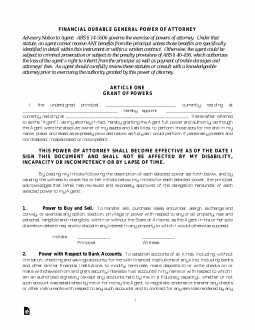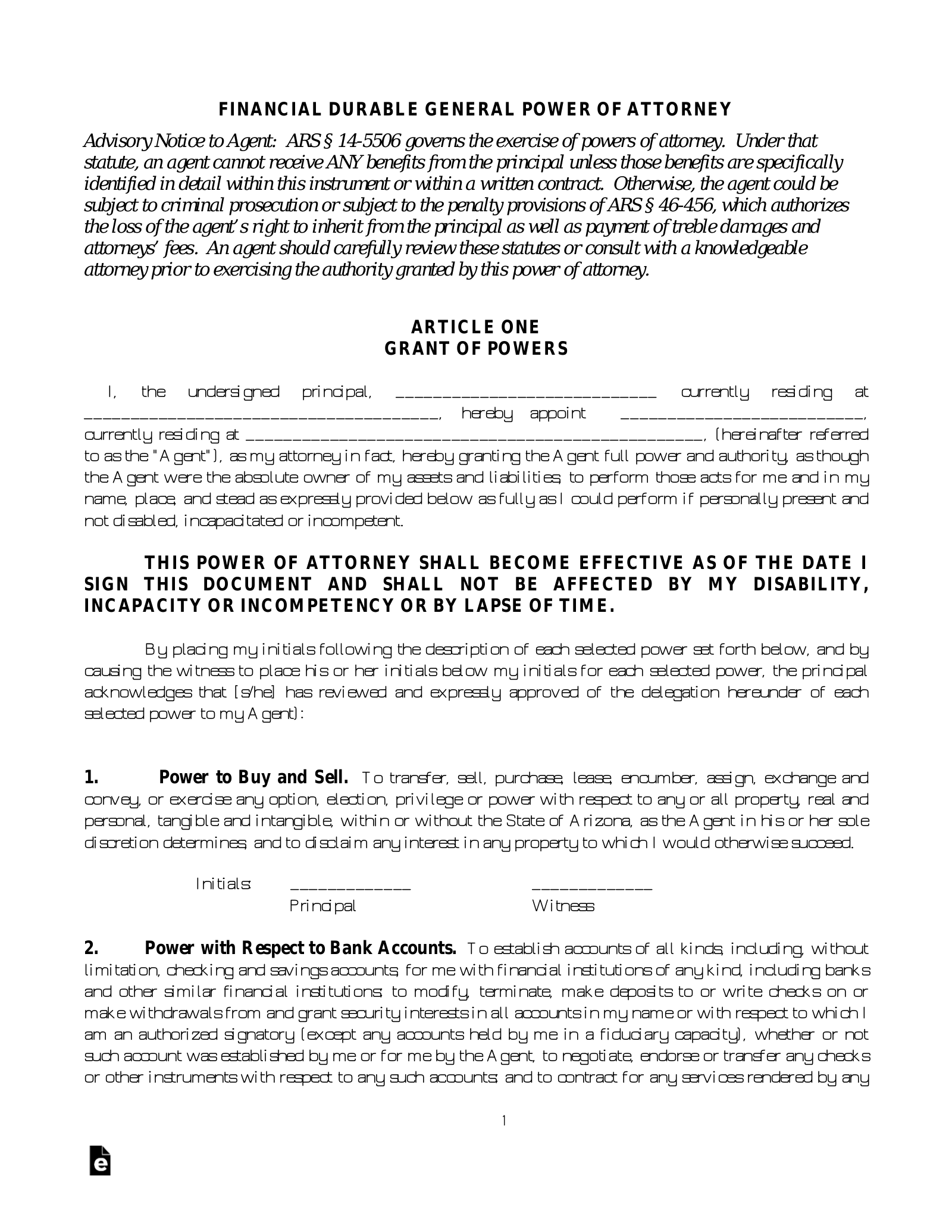Updated April 16, 2024
An Arizona power of attorney is a legal document that appoints a specific person to act in someone else’s place for financial, medical, or parental reasons. As an example, if a person is hospitalized after a car accident, this document allows his or her designated representative (“agent” or “attorney-in-fact”) to take over temporarily and administer their estate, deal with bank accounts, pay bills, and even make medical decisions if required.
 Durable (Financial) Power of Attorney – If an individual becomes mentally incompetent due to illness or injury, it allows a grantor the ability to take over finances until the principal regains their mental faculties. Durable (Financial) Power of Attorney – If an individual becomes mentally incompetent due to illness or injury, it allows a grantor the ability to take over finances until the principal regains their mental faculties.
Download: PDF Signing Requirements (§ 14-5501): One (1) witness and a notary public. |
 Advance Health Care Directive – Also known as the “life care planning packet” and includes a medical power of attorney, a living will, and a do not resuscitate order (DNR). Advance Health Care Directive – Also known as the “life care planning packet” and includes a medical power of attorney, a living will, and a do not resuscitate order (DNR).
Download: PDF Signing Requirements (§ 36-3224, § 36-3262): One (1) witness or a notary public. |
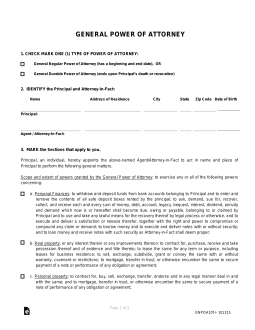 General (Financial) Power of Attorney – Grants the agent the ability of someone else to be able to handle all financial matters on behalf of a principal. It does not remain valid if the principal becomes incapacitated. General (Financial) Power of Attorney – Grants the agent the ability of someone else to be able to handle all financial matters on behalf of a principal. It does not remain valid if the principal becomes incapacitated.
Download: PDF Signing Requirements (§ 14-5501): One (1) witness and a notary public. |
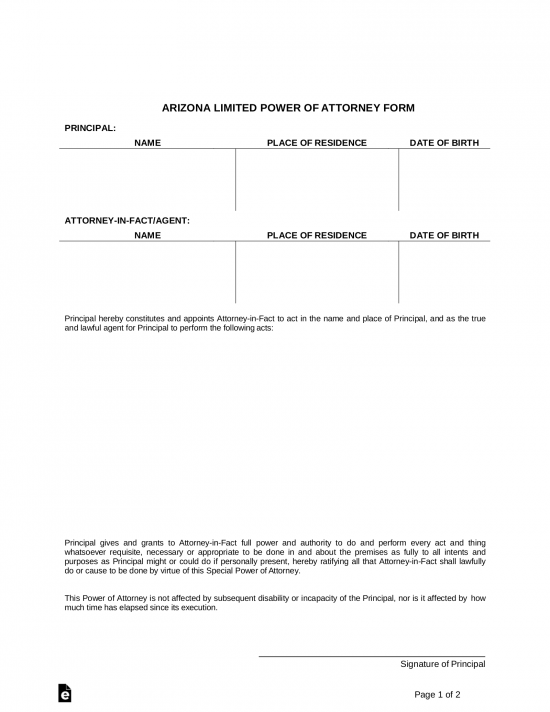 Limited Power of Attorney – Limits an agent’s care of the individual to monetary matters. Limited Power of Attorney – Limits an agent’s care of the individual to monetary matters.
Download: PDF, MS Word, OpenDocument Signing Requirements (§ 14-5501): One (1) witness and a notary public. |
 Living Will – Allows an individual to set their end-of-life treatment options without the use of a health care agent. Living Will – Allows an individual to set their end-of-life treatment options without the use of a health care agent.
Download: PDF Signing Requirements (§ 36-3261(b)) – One (1) witness or a notary public. |
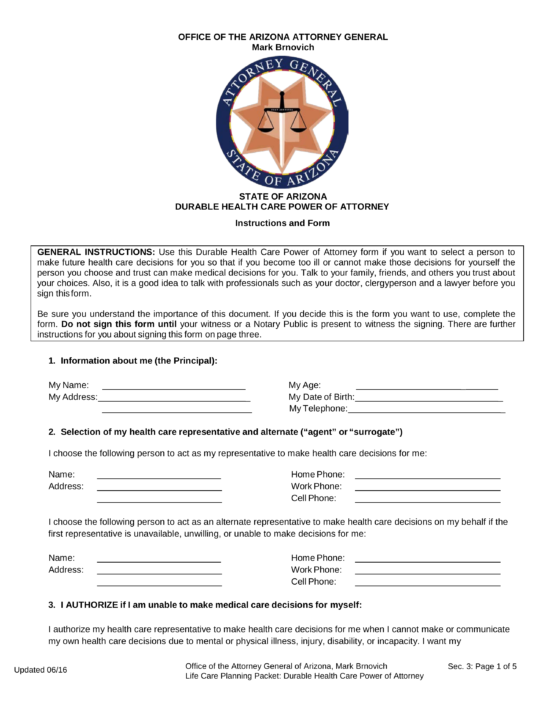 Medical Power of Attorney – Select any individual(s), family or friend, to make medical decisions if the principal cannot do so for themselves. Medical Power of Attorney – Select any individual(s), family or friend, to make medical decisions if the principal cannot do so for themselves.
Download: PDF Signing Requirements (§ 36-3224): One (1) witness or a notary public. |
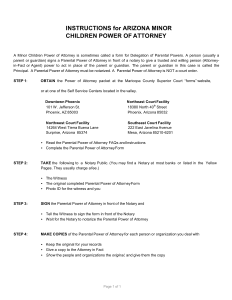 Minor Child Power of Attorney – Designates temporary guardianship over minor children for up to six (6) months unless the person is on active military duty, in which case they may extend that to one (1) year. Minor Child Power of Attorney – Designates temporary guardianship over minor children for up to six (6) months unless the person is on active military duty, in which case they may extend that to one (1) year.
Download: PDF, MS Word, OpenDocument |
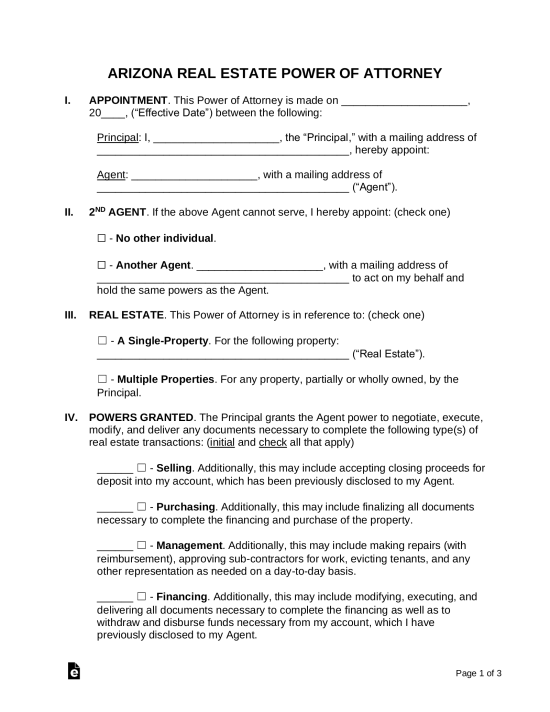 Real Estate Power of Attorney – Allows an individual, known as an ‘Agent’ or Attorney-in-Fact’, to handle purchasing, selling, or managing real estate. Real Estate Power of Attorney – Allows an individual, known as an ‘Agent’ or Attorney-in-Fact’, to handle purchasing, selling, or managing real estate.
Download: PDF, MS Word, OpenDocument Signing Requirements (§ 14-5501): One (1) witness and a notary public. |
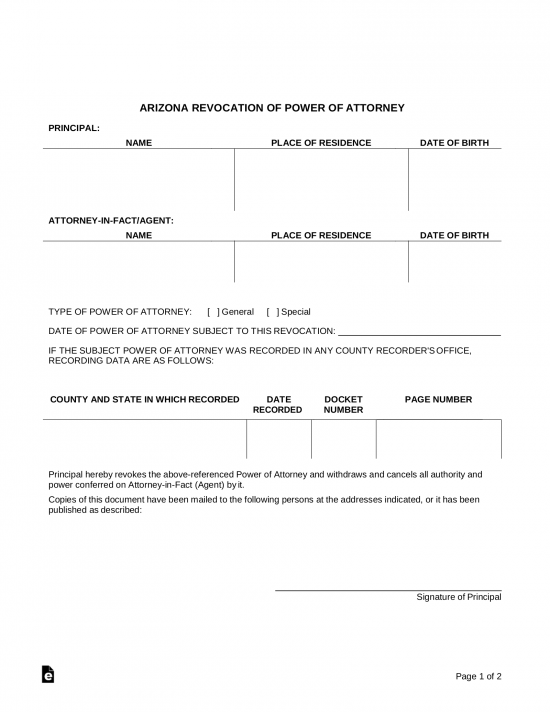 Revocation of a Power of Attorney – Used to revoke power of attorney at any time, as long as they are of sound mind. Revocation of a Power of Attorney – Used to revoke power of attorney at any time, as long as they are of sound mind.
Download: PDF, MS Word, OpenDocument |
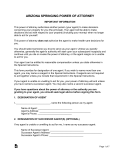 Springing Power of Attorney – Appoint a specific person, usually an accountant, who will handle all filings on behalf of an individual or entity with the Department of Revenue. Springing Power of Attorney – Appoint a specific person, usually an accountant, who will handle all filings on behalf of an individual or entity with the Department of Revenue.
Download: PDF, MS Word, OpenDocument Signing Requirements: One (1) witness and a notary public. |
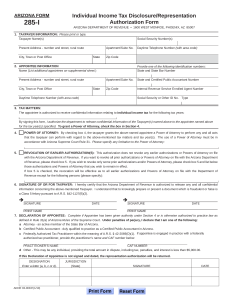 Tax Power of Attorney (285-I) – Appoint a specific person, usually an accountant, that will handle all filings on behalf of an individual or entity with the Department of Revenue. Tax Power of Attorney (285-I) – Appoint a specific person, usually an accountant, that will handle all filings on behalf of an individual or entity with the Department of Revenue.
Download: PDF Signing Requirements: Principal and appointee. |
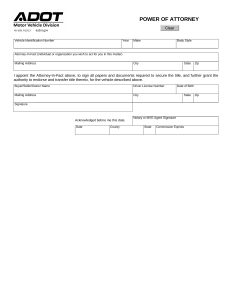 Vehicle Power of Attorney (48-1001) – To handle title on another person’s vehicle and to engage in the buying or selling for someone else. Vehicle Power of Attorney (48-1001) – To handle title on another person’s vehicle and to engage in the buying or selling for someone else.
Download: PDF Signing Requirements: Notary public or an MVD agent. |

